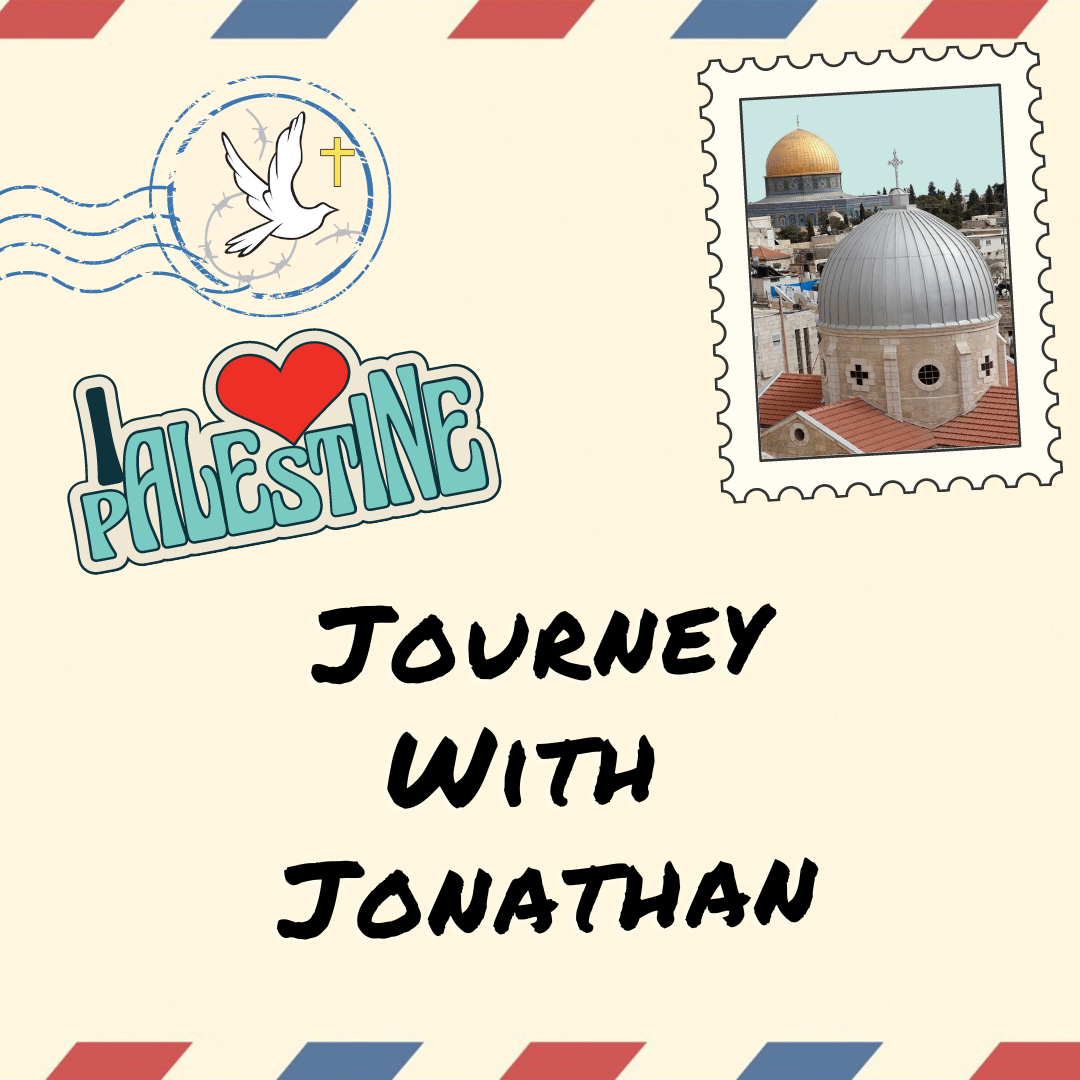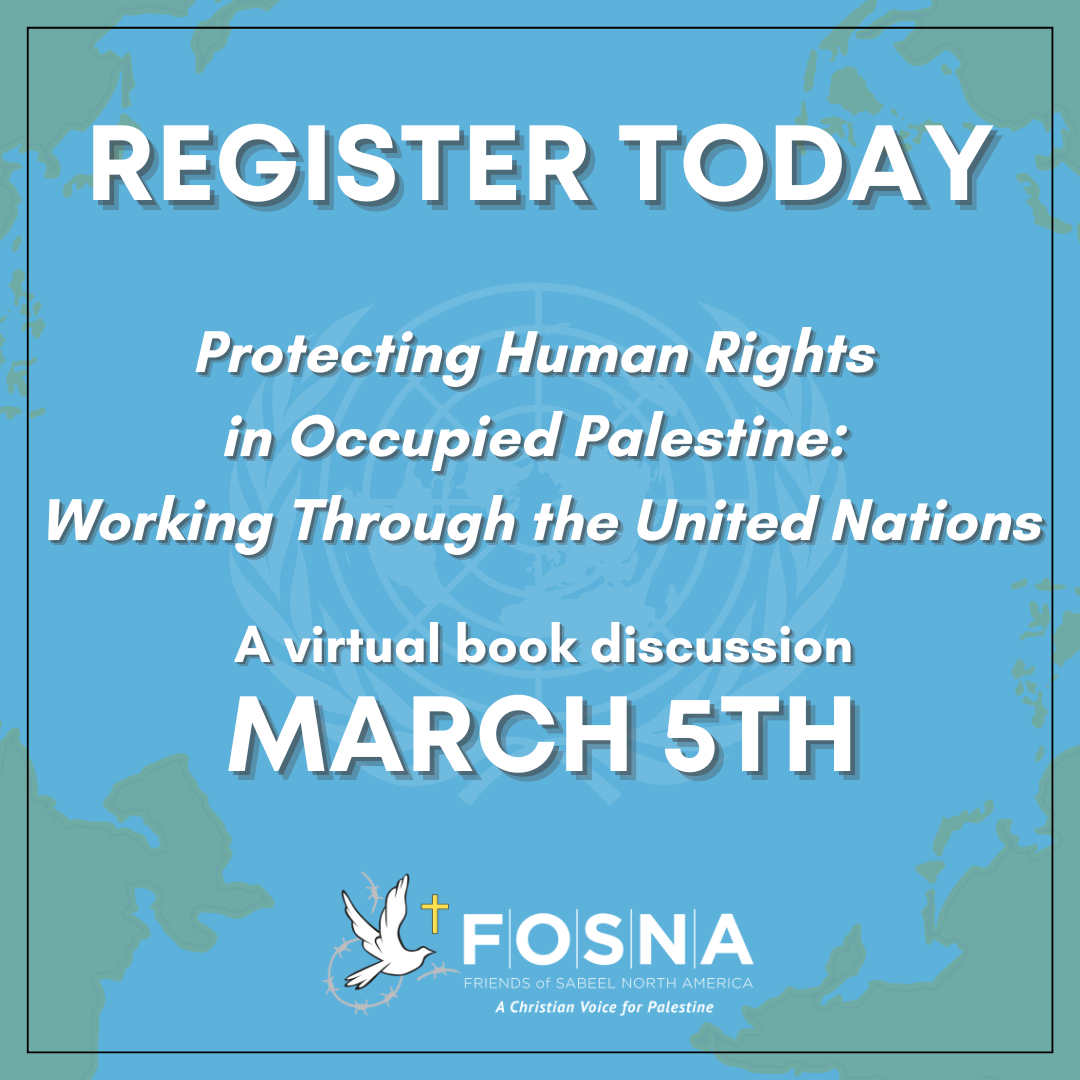Israeli Protests
by Jonathan Kuttab
Israel is being rocked these days by massive protests against the new government. Protestors in the hundreds of thousands, carrying Israeli flags, have blocked roads and created havoc in many Israeli cities, including Tel Aviv and Jerusalem. They even called for a general strike on Monday to paralyze the entire country, warning of a slide towards dictatorship. They are seeking to “save democracy” and revert to those values that define Israel as “Jewish and democratic.”
As I listen to the nonstop commentaries and debates on Israeli television and radio, in Hebrew, I feel the need to interpret these events for our constituency in the United States, who may not be fully aware of all the details of the Israeli scene.
The Israeli system purports to be a parliamentary democracy whereby the government is composed of the Parliamentary majority, essentially a consolidation of the executive and legislative branches. This is unlike the United States, where the three branches of government (Legislative, Executive, and Judicial) are clearly separate and form a system of checks and balances, intended to prevent any of the three branches from tyrannical rule. In addition, the large number of parties in Israel mandates that the government be composed of coalitions, a process that enables even small parties, like religious and right-wing parties to further consolidate their power over the executive branch and essentially control the actions of the government, without any checks, except maybe from the courts.
Furthermore, in the absence of a written constitution, the role of the Judiciary is enhanced as it becomes the only brake or check on the total power of the government. The current crisis is compounded by the fact that at least two of the major coalition leaders have run afoul of the law, and they are in the process of being sentenced, sent to jail, or denied the right to hold public office. As such, they are personally invested in the need to control the judiciary, reduce its power to overturn government decisions, and enhance the power of the Knesset in order to appoint judges who would rule in their favor on their own specific cases, and would allow their political parties more power to insulate their past or current actions from judicial scrutiny.
During the recent elections, radically fascist as well as extremist religious parties gained a significant number of seats, becoming essential partners for Netanyahu to form his government (with a coalition of 64 members in the 120 member Knesset). In a recent commentary, I argued that this slide into extremism was “predictable, inevitable, and irreversible.”
The inclusion of openly racist, fascist, and homophobic elements in the government was perhaps unavoidable. The shock to the “leftists” in the Israeli establishment resulted from an open attack by the new government against the Judiciary and its demand for “reforms” that would effectively reduce the power of the Judiciary to act as the only realistic brake or balance within the Israeli system.
What gave this fear of “judicial reform” its edge is that in addition to Netanyahu (facing prison sentences) and Chas leader Derii (convicted and prohibited from holding office) another one of the leaders of the new coalition, Itamar Ben Gvir, was himself convicted of incitement and terrorism and is viewed as a dangerous, incendiary presence by the police. Now, he has been appointed as Minister of Police and is in charge of dealing with Palestinians, whom he recently threatened openly with “a Second Nakba.” He raised further fears when he demanded that Arab neighborhoods in Jerusalem be placed under curfew and their inhabitants harassed as part of a “Second Protective Edge” operation.
One may rightly ask: what does this wave of protests do to advance the prospects of peace between Israelis and Palestinians? Unfortunately, most of the protestors have pointedly refused to address this issue. They neither invited nor welcomed Palestinian citizens of Israel to join in the protests. They discouraged the raising of any Palestinian flags and refused to make the occupation an issue in their protest against government policies. In other words, they projected a message that this fight is over the nature of the Jewishness of the state of Israel. They are more interested in maintaining the type of violent status quo we have seen thus far rather than in recognizing that the same forces that have led to fascism and extremism against Palestinians were now turning against them as well. To fight for democracy, they must realize that Palestinians have not experienced democracy in Israel and that the High Court, which they hope will preserve their rights against religious extremists, bigots, and homophobes, has never been a champion of Arab freedom.
Despite this, I personally feel that the current wave of unrest provides a genuine opportunity to challenge Israelis and their supporters to pursue authentic equality and justice for the Palestinians and to realize that none of us can be free until all of us are free.
FOSNA News
Journey with Jonathan
Our Executive Director Jonathan Kuttab is in Palestine this month. Follow along with his journey and his reflections on the current climate on the ground by reading his entries, starting from here.
Take Action!
Support UNRWA
(UNRWA) Contact your member of Congress now to let them know you want your tax dollars to continue to support UNRWA's work on behalf of Palestine refugees. A letter to your representative is drafted and ready. You just need to add your name.
Get Involved!
We invite you to join us in the following events and activities:
March 5: Online
Join our online book discussion of Protecting Human Rights in Occupied Palestine: Working Through the United Nations by UN Rapporteurs John Dugard, Michael Lynk, and Richard A. Falk, with a foreword by Francesca Albanese, on March 5th via Zoom.
Sabeel Ecumenical Liberation Theology Center, Jerusalem:
Weekly
Sabeel Prayer Service. Join Sabeel every Thursday (6pm Jerusalem) for online Bible Study, discussion, and prayer. Examine scripture in light of the ongoing realities confronting the Palestinian Church and the pursuit of Palestinian liberation.
Wave of Prayer. Subscribe to receive Sabeel's Wave of Prayer, enabling friends of Sabeel around the world to pray over issues of critical concern to the Holy Land on a weekly basis.
Kumi Now! (Week 7) Discriminatory Policies towards the Palestinian People. In declaring February 20 the World Day of Social Justice, the United Nations stated “that social development and social justice are indispensable for the achievement and maintenance of peace and security within and among nations and that, in turn, social development and social justice cannot be attained in the absence of peace and security or in the absence of respect for all human rights and fundamental freedoms.” It is clear that there are many practices of the Israeli government that deny Palestinians their human rights and fundamental freedom and, by extension, their social development and justice.
One of these practices is that of citizenship denial and discrimination, and the restrictions on movement and opportunities that come with it. Asking a Palestinian about her passport quickly becomes an object lesson in the machinations of occupation. Which passport, if any, a Palestinian possesses, where they may live, which roads they can drive, and even who they can marry, is often determined by something as minor as which side of a roadway a grandparent lived on in 1948. Here’s what you need to know about citizenship discrimination so that together we can rise up.. The blockade of Gaza is a noose around its neck. One of the worst impacts of that noose is the denial of patients’ rights to travel within Palestinian territory for treatment, which is not available in Gaza. As a result, 54 patients died awaiting permission to travel for medical treatment in 2017. Begun in 1994 by the Catholic Church, the World Day of the Sick, observed every February 11, is a day for turning our attention and aid to those suffering from sickness. Join the Kumi Now community and learn about the medical blockade of Gaza and what you can do so that together we can rise up.



